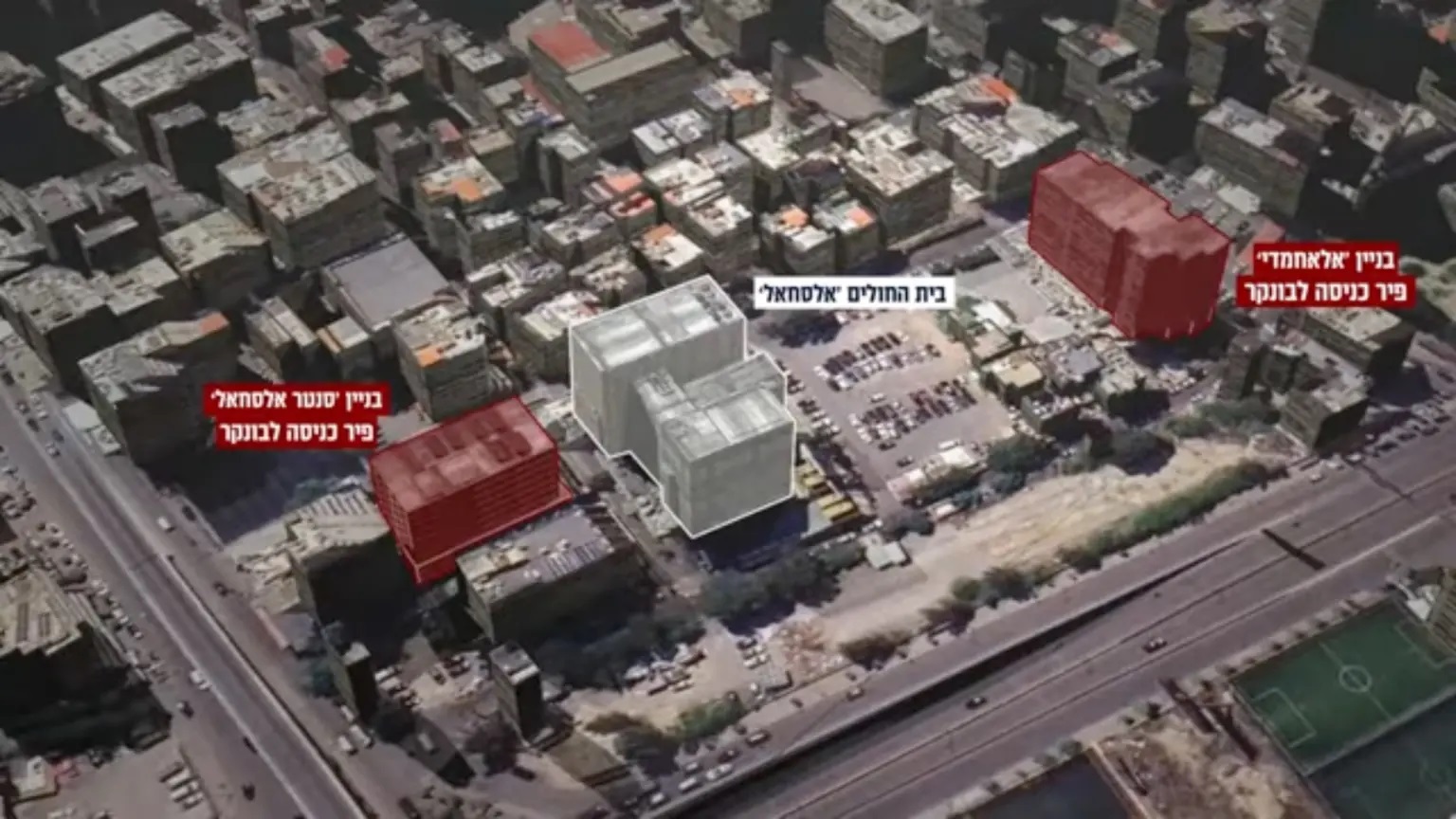On Monday, Israel announced that it has declassified intelligence that asserts the existence of a clandestine Hezbollah financial center beneath a hospital in Beirut. The bunker, which was purportedly utilized to finance the group’s operations, was said to contain hundreds of millions of dollars in cash and gold, according to the Israel Defense Forces (IDF).
This disclosure was made in response to a series of targeted airstrikes conducted by the Israeli Air Force on Sunday night, which were intended to target Hezbollah’s financial assets. During a televised briefing, IDF spokesperson Rear Admiral Daniel Hagari disclosed that he would “declassify intelligence on a site that we did not strike-where Hezbollah has millions of dollars in gold and cash in Hassan Nasrallah’s bunker, tonight.” The bunker is situated in the heart of Beirut, directly beneath Al-Sahel Hospital.
Hagari stated that the site had not yet been struck, despite the purported existence of substantial financial resources. “This bunker is believed to contain a minimum of half a billion dollars in gold and dollar bills.” He stated that this money could and still could be utilized to reconstruct the state of Lebanon.
The airstrikes conducted on Sunday night were directed at nearly 30 locations that were affiliated with Hezbollah. These locations included those that were operated by Al-Qard Al-Hassan (AQAH), a financial institution that is affiliated with Hezbollah. Israel and the United States have accused AQAH of serving as a critical financial arm of Hezbollah, facilitating its access to cash and gold reserves for military purposes, despite its registration as a charity.
Hagari alleged that an underground vault containing tens of millions of dollars in cash and gold was one of the primary targets. Allegedly, these resources were being utilized to finance attacks on Israel. Hagari did not specify whether the strike resulted in the destruction of all funds; however, he indicated that additional airstrikes, particularly those directed at financial hubs, could be anticipated.
The strikes were initiated in response to an increased Israeli endeavor to disrupt Hezbollah’s financial operations. The campaign, which spanned a 24-hour period, culminated in more than 300 strikes on Hezbollah positions in Lebanon, including critical financial and logistical hubs, according to IDF Chief of Staff Lt Gen Herzi Halevi.
Since the 1980s, Al-Qard Al-Hassan has been operating in Lebanon, offering credit to Lebanese citizens in exchange for gold deposits. Israeli and US officials contend that the organization is a critical asset in Hezbollah’s financial network, allowing the group to finance its activities and launder money under the guise of civilian banking, despite being officially classified as a charity.
Hagari asserted that Hezbollah’s primary sources of revenue are the Iranian regime and the Lebanese populace. He alleged that the group employs financial mechanisms such as cash transfers through Syria and gold smuggled into Lebanon via Iran. According to IDF intelligence, Hezbollah’s terror activities are allegedly funded by the substantial revenue generated by its factories in Lebanon, Syria, Yemen, and Turkey.
In a related development, Israel conducted an airstrike on Monday in Syria, which targeted the head of Hezbollah’s financial unit, Unit 4400. The unit is accountable for the transfer of Iranian funds to Hezbollah, primarily through the proceeds of Tehran’s oil sales. Hagari reports that the strike resulted in the death of the unnamed commander, who had only been in the position for a few weeks.
This is the second significant assassination of a financial figure from Hezbollah in recent weeks. The previous head of Hezbollah’s financial operations, Mohammed Jafar Ksir, also known as Sheikh Salah, was killed by Israeli forces in early October. Ksir had long been responsible for the group’s revenue streams, which have been essential to its military and political influence in Lebanon.
The most recent Israeli operations occurred in the context of an ongoing escalation in hostilities between Israel and Hezbollah, which have been ongoing since Hezbollah launched a series of attacks in solidarity with Hamas following the October 7 attacks in 2023.
